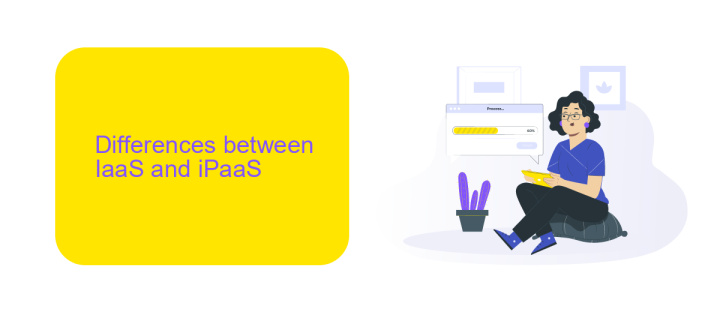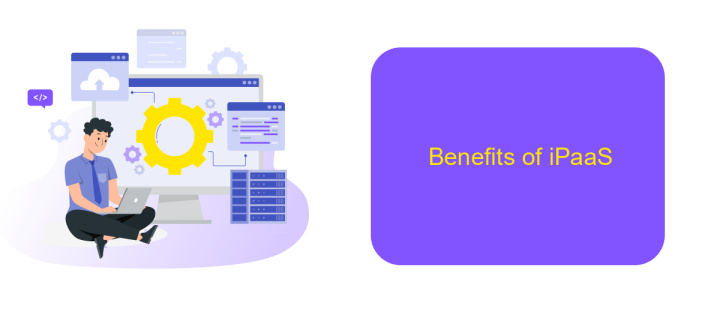IaaS vs iPaaS
In today's rapidly evolving tech landscape, businesses are increasingly leveraging cloud services to enhance their operations. Two prominent solutions are Infrastructure as a Service (IaaS) and Integration Platform as a Service (iPaaS). While both offer unique benefits, understanding their key differences is crucial for making informed decisions. This article delves into the distinctions between IaaS and iPaaS, helping you choose the right solution for your needs.
Definition of IaaS and iPaaS
Infrastructure as a Service (IaaS) and Integration Platform as a Service (iPaaS) are two distinct cloud computing models designed to meet different needs. IaaS provides virtualized computing resources over the internet, allowing businesses to rent servers, storage, and networking components on a pay-as-you-go basis. This model offers flexibility and scalability, enabling companies to manage their infrastructure without the need for physical hardware.
- IaaS: Delivers virtualized computing resources.
- iPaaS: Facilitates integration of various applications and services.
On the other hand, iPaaS is a cloud-based platform that simplifies the integration of various applications and services. It allows organizations to connect disparate systems, automate workflows, and manage data flows effortlessly. A prime example of an iPaaS solution is ApiX-Drive, which enables seamless integration between multiple software applications, enhancing operational efficiency and reducing manual intervention. By leveraging iPaaS, businesses can ensure smooth data exchange and streamline their processes, making it an invaluable tool in today's interconnected digital landscape.
Differences between IaaS and iPaaS

IaaS (Infrastructure as a Service) and iPaaS (Integration Platform as a Service) serve distinct purposes within the cloud computing ecosystem. IaaS provides virtualized computing resources over the internet, allowing businesses to rent servers, storage, and networking capabilities. This model offers flexibility and scalability, enabling organizations to manage and run their own applications and data without the need to invest in physical hardware. In contrast, iPaaS focuses on facilitating the integration of various applications and services. It provides tools and platforms that streamline the process of connecting disparate systems, making it easier for businesses to automate workflows and data sharing.
One of the key differences lies in their core functionalities. IaaS is primarily concerned with providing the foundational infrastructure, whereas iPaaS is dedicated to enabling seamless integration between different software applications. For instance, services like ApiX-Drive offer comprehensive solutions for automating and managing integrations, allowing businesses to connect various applications without extensive coding. This makes iPaaS a vital tool for organizations looking to enhance their operational efficiency through interconnected systems. While IaaS offers the building blocks for IT infrastructure, iPaaS ensures that these blocks can work together harmoniously.
Benefits of IaaS

Infrastructure as a Service (IaaS) offers numerous advantages for businesses looking to scale and optimize their IT resources. By leveraging IaaS, companies can reduce the costs associated with maintaining physical hardware and infrastructure, allowing them to focus more on their core business activities.
- Scalability: IaaS provides the flexibility to scale resources up or down based on demand, ensuring optimal performance during peak times without over-provisioning.
- Cost Efficiency: Pay-as-you-go pricing models help businesses avoid large upfront investments and only pay for the resources they actually use.
- Disaster Recovery: IaaS solutions often include robust disaster recovery options, ensuring data protection and business continuity in case of unexpected events.
- Accessibility: With IaaS, teams can access their infrastructure from anywhere, facilitating remote work and collaboration.
- Integration: Services like ApiX-Drive can be used to seamlessly integrate various applications, enhancing workflows and improving efficiency.
Overall, IaaS provides a flexible, cost-effective, and scalable solution for modern businesses. By leveraging these benefits, companies can enhance their operational efficiency and focus on strategic initiatives rather than managing IT infrastructure.
Benefits of iPaaS

Integration Platform as a Service (iPaaS) offers numerous benefits for businesses looking to streamline their operations and enhance connectivity between various applications. By providing a cloud-based solution, iPaaS eliminates the need for complex on-premises infrastructure, making it easier and more cost-effective for companies to manage their integrations.
One of the key advantages of iPaaS is its ability to automate and simplify the integration process. With tools like ApiX-Drive, businesses can effortlessly connect different systems and applications, ensuring seamless data flow and improved operational efficiency. This not only saves time but also reduces the likelihood of errors that can occur with manual integration efforts.
- Scalability: Easily scale your integrations as your business grows.
- Cost-Effective: Reduce costs associated with maintaining on-premises infrastructure.
- Flexibility: Integrate a wide range of applications and services.
- Automation: Automate repetitive tasks and workflows.
- Real-Time Data: Access and manage data in real-time.
Moreover, iPaaS platforms like ApiX-Drive provide robust security measures to protect sensitive data during transit and storage. This ensures that businesses can maintain compliance with industry standards and regulations while benefiting from enhanced integration capabilities. Overall, iPaaS offers a powerful solution for modern enterprises looking to optimize their digital ecosystems.
Choosing the Right Solution for Your Business
Choosing between IaaS and iPaaS depends on your business needs and technical requirements. If your organization requires scalable infrastructure with control over hardware and software configurations, IaaS might be the right choice. It allows you to manage virtual machines, storage, and networking resources, providing flexibility and control. On the other hand, if your primary goal is to streamline integrations and automate workflows between various applications, iPaaS solutions like ApiX-Drive can be more beneficial. ApiX-Drive simplifies the process of connecting different software systems, enabling seamless data flow and reducing manual efforts.
When evaluating these solutions, consider your team's expertise and the complexity of your IT environment. IaaS might demand more technical skills for setup and maintenance, while iPaaS platforms often offer user-friendly interfaces and pre-built connectors for popular applications. Additionally, assess the cost implications; IaaS typically involves pay-as-you-go pricing models based on resource usage, whereas iPaaS may offer subscription-based plans. Ultimately, the right choice will align with your business objectives, technical capabilities, and budget constraints.


FAQ
What is the primary difference between IaaS and iPaaS?
When should I choose IaaS over iPaaS?
Can I use iPaaS to automate workflows between different applications?
What are some common use cases for iPaaS?
How does iPaaS handle data security and compliance?
Do you want to achieve your goals in business, career and life faster and better? Do it with ApiX-Drive – a tool that will remove a significant part of the routine from workflows and free up additional time to achieve your goals. Test the capabilities of Apix-Drive for free – see for yourself the effectiveness of the tool.

